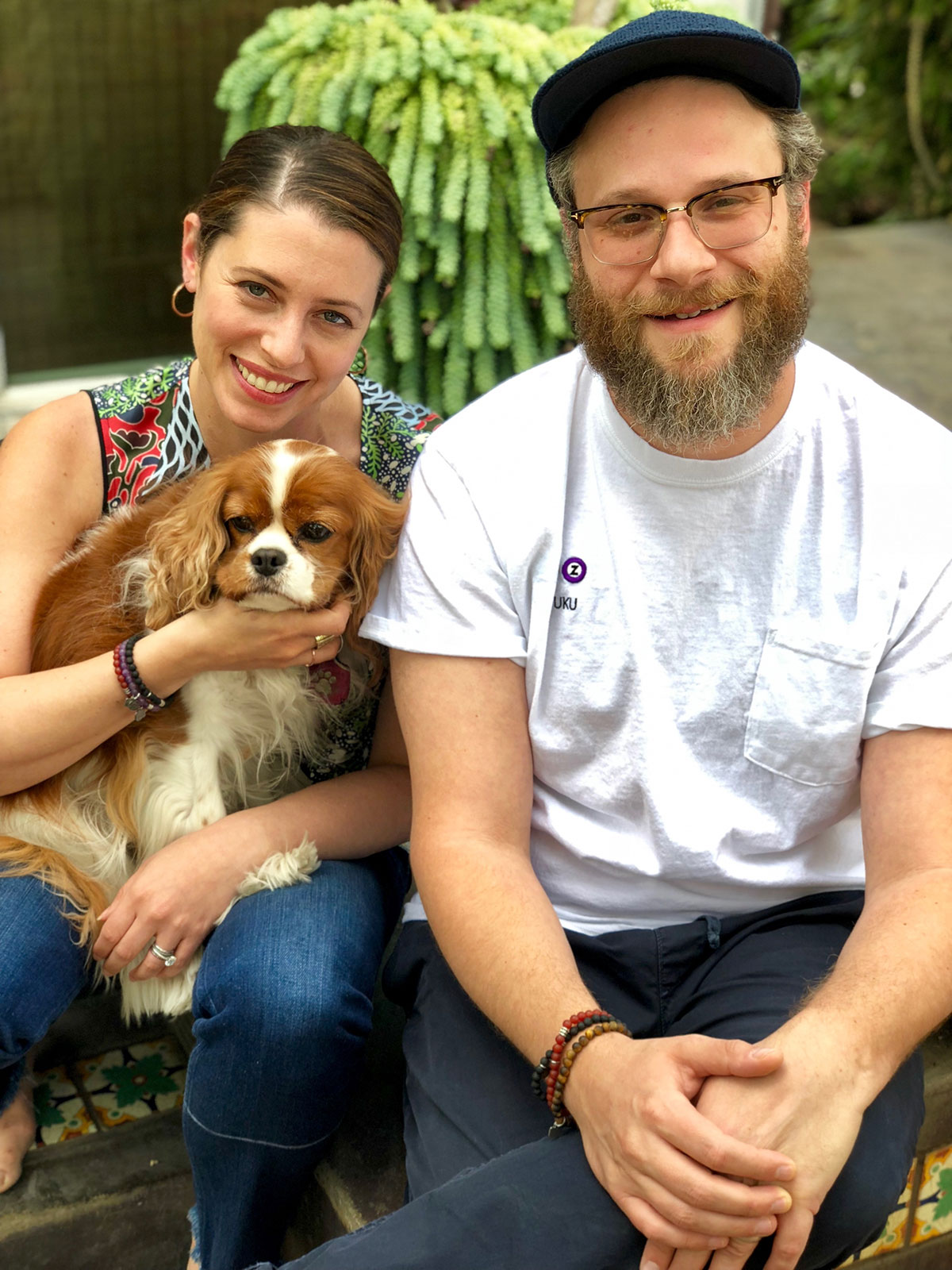Alzheimer’s isn’t a disease that only affects old people. People in their 40s and 50s can also develop the most common form of dementia, which causes symptoms including memory loss and confusion.
When Seth Rogen’s mother-in-law was diagnosed with early-onset Alzheimer’s, that truth became clear to the comedian and actor. The news led him and his wife, Lauren Miller Rogen, to form the nonprofit HFC (formerly Hilarity for Charity) in 2012. HFC advocates for awareness and education on Alzheimer’s disease, and aims to inspire future champions of these causes.
Getting involved
Miller Rogen was somewhat familiar with Alzheimer’s disease because her grandparents had dementia. But she realized there was so much she didn’t know when she dove into the research following her mother’s diagnosis.
“At first, when my mom was diagnosed, it was education by fire,” said Miller Rogen, who was 20 at the time. “No one plans to become a caregiver. So we learned what we could, as quickly as we could, in order to provide the best care for my mom. But it was really hard.”
Back then, there was more stigma and less information about dementia than there is today.

“To manage dementia wasn’t a new problem to have, but it felt like it was because no one ever talked about it,” Miller Rogen said. “We also realized that young people, in particular, were really lacking in education about Alzheimer’s because it was, you know, ‘an old person’s disease.’ But the science tells us that’s wrong, and that Alzheimer’s actually begins in the brain up to 20-30 years before the onset of symptoms.”
Rogen explained, “That fact really motivated us to start educating ourselves and people our age (we were young then!) about Alzheimer’s prevention and brain health.”
Promoting healthy habits
A lot of people also don’t understand that just because you have a first-degree relative with Alzheimer’s, that doesn’t guarantee you will develop it as well.
“Some forms of Alzheimer’s and dementia are hereditary, but not all,” Miller Rogen said. “So it’s super important for everyone — especially young people — to care for their brains in the same way we care for our hearts, and it’s definitely a practice.”
While they aren’t “brain health perfectionists,” Miller Rogen explained, the couple tries to eat a healthy diet, exercise, track their sleep, and seek out stress-reducing creative activities, such as pottery. “And on Saturdays, we eat ice cream for happiness,” Miller Rogen added.
They also make time for laughter.
“Seriously, humor is good for your brain — and we don’t just say that because we’re comedians,” Rogen said. “There’s mounting data to support that laughter may strengthen your immune system, relieve pain, and boost your mood — all important things toward adopting those brain-health habits.”
Rogen added that making healthy lifestyle choices like those may prevent 4 in 10 cases of Alzheimer’s disease. He recommended checking out HFC’s 5 Brain Health Habits to begin or improve a brain-healthy diet and lifestyle.
Inspiring fellow caregivers
Ultimately, education is a crucial step in protecting one’s own health, as well as a loved one who is living with Alzheimer’s. Part of this mission means starting a conversation with healthcare professionals.
Humility and preparation are key, said Miller Rogen, who emphasized preparing a list of researched questions to ask your loved one’s doctor. Get second or third opinions as needed, Rogen said, especially if the doctor isn’t educated about Alzheimer’s.

“Also, doctors aren’t the only people you can bring your questions to,” Miller Rogen said. “Ask your family, friends, and other caregivers. HFC has virtual support groups that aim to pair people together who are in similar situations, and it can be so helpful to connect with someone who can empathize with your experiences and offer advice or direction. The more we all talk about this disease, the better chance we have of ending it.”

